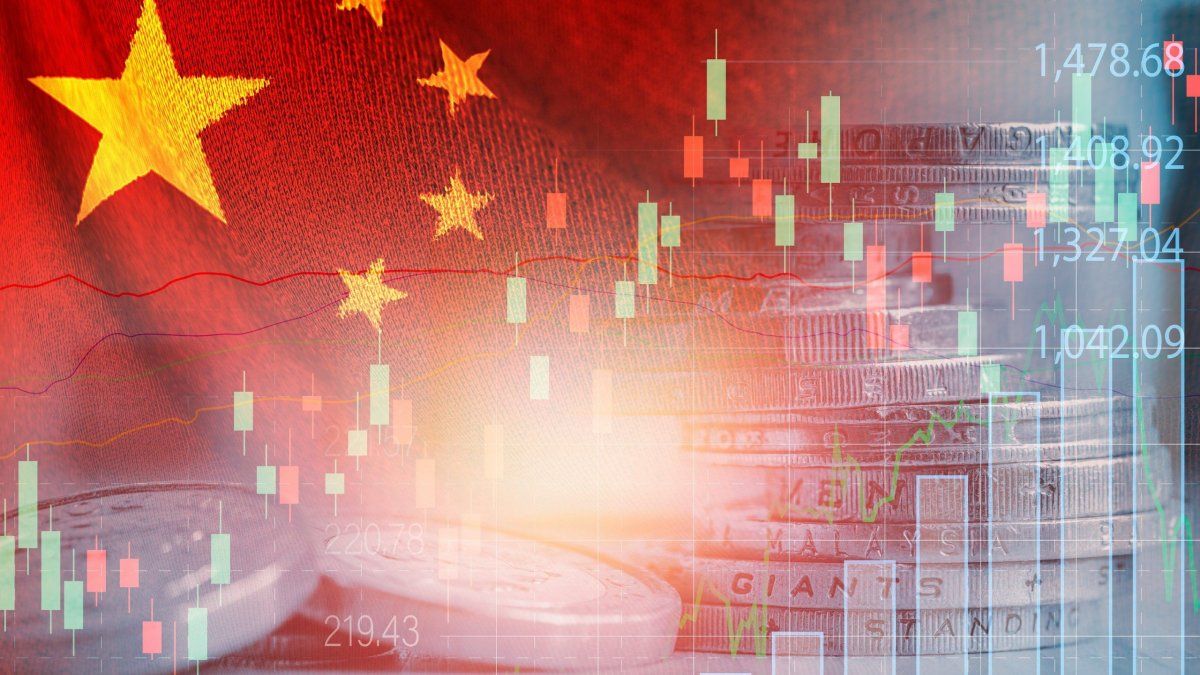He central bank of china announced new measures on Tuesday to boost the economy, such as a reduction of the liquid deposits that banks must hold as reserves and a cut in a key interest rate, representing the most aggressive stimulus plan since the pandemic.
Nearly two years after the lifting of restrictive anti-Covid measures, the world’s second largest economy has yet to take off despite the steps taken by the authorities to relaunch activity. The post-pandemic recovery was shorter and less robust than expected, weighed down by a housing crisis, weak consumption and high unemployment, especially among young people.
In an attempt to reverse this situation and achieve the 5% growth target set by the authorities for this year, considered optimistic by analysts, The central bank presented a series of stimulus measures on Tuesday.
China “will reduce the minimum mandatory reserve ratio and the base interest rate” for banking entities and “will cut the reference interest rate in the market”, said its governor, Pan Gongsheng, at a press conference in Beijing.
“The reserve requirement will be reduced by 0.5 percentage points in the near future to provide long-term liquidity to the 1 trillion yuan financial market” (more than $140 billion), Pan said. Authorities also “They will reduce the interest rates on existing mortgage loans and unify the down payment ratio for mortgage loans,” he added.
This “will lead commercial banks to reduce interest rates on multiple existing mortgage loans to bring them closer to the interest rates on new loans,” argument.
According to the governor, this decision “will benefit 50 million households and 150 million people, reducing the average annual interest bill for households by about 150 billion yuan,” more than 21 billion dollars. “It helps promote the expansion of consumption and investment,” he said.
Chinese stimulus plan: strong impact on Hong Kong and Shanghai stock markets
The Hong Kong and Shanghai stock exchanges reacted positively to the announcements, both closing the session with gains of more than 4%.
Xi-jinping.jpg
Xi Jinping, current president of the People’s Republic of China.
An analyst told the economic news agency Bloomberg that The measures were “bolder than expected, with rate cuts and minimum reserve requirements cut at the same time”. “We see scope for bolder easing in the coming quarters”added Becky Liu, head of macro strategy for China at Standard Chartered bank.
Analyst Raymond Yeung of ANZ bank commented that the measures announced “are far from being the mega-recovery plan” advocated by many experts, and he stressed that China “seems to be caught in a liquidity trap.”
In this regard, and to attract more capital, the central bank also announced this Tuesday a 500 billion yuan ($70 billion) fund, which listed companies and insurers will be able to tap to buy shares on the stock exchange.
For years, property has accounted for more than a quarter of China’s GDP, but the sector has been in unprecedented trouble since 2020, when authorities restricted developers’ access to credit to contain their soaring debt. Since then, major companies such as Evergrande and Country Garden have faltered and collapsing prices have deterred consumers from investing in property. Beijing has unveiled numerous measures to revive industry, but this has failed to restore confidence, and housing prices have continued to fall.
Added to this problem is the China’s high local government debt, which stands at 5.6 trillion yuan (nearly $800 billion) according to the central government, fueling fears of a wider crisis. At the central bank’s press conference, National Financial Regulatory Administration director Li Yunze said Beijing will “actively cooperate in solving debt risks of the property sector and local governments.” “China’s financial industry, especially large financial institutions, are operating stably and risks are controllable,” he said. “We will firmly uphold the goal of preventing systemic financial risks.”
Source: Ambito
I am a 24-year-old writer and journalist who has been working in the news industry for the past two years. I write primarily about market news, so if you’re looking for insights into what’s going on in the stock market or economic indicators, you’ve come to the right place. I also dabble in writing articles on lifestyle trends and pop culture news.




